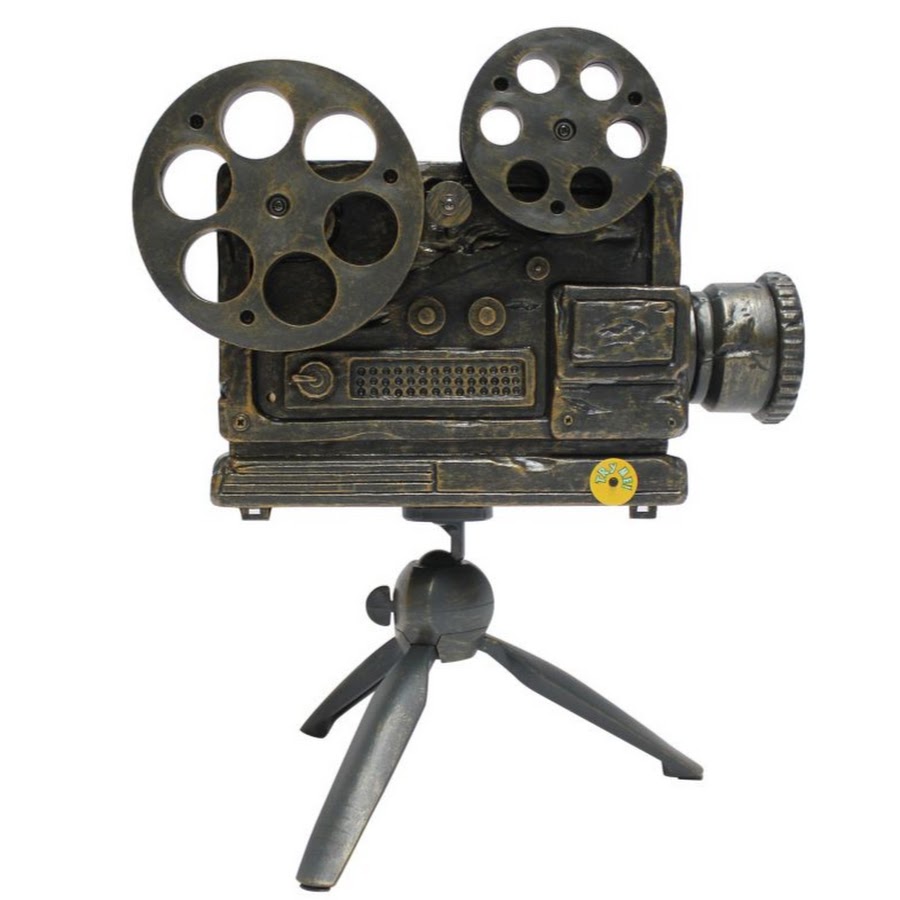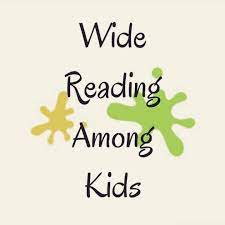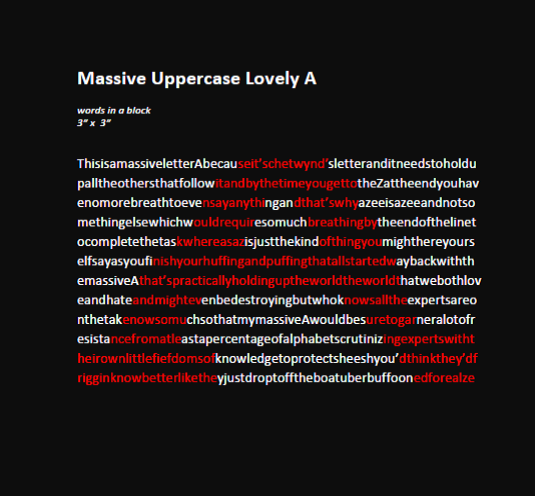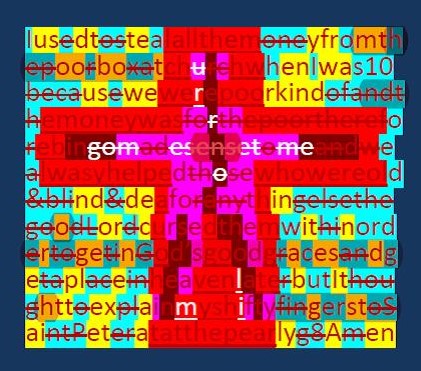Only Fragments Found I wonder how can I tell my child that we are humans? Everyone is pointing and shouting at The blacks, the Asians, and the Arabs. I don't understand who is inferior or superior. Am I lazy to remain silent? Like a warrior widow. Maybe I am insane to resist the awful travesty? Bush promised me that he is going to establish equal opportunity and peace for my country. Since the war started only fragments found Everyday is another kind of tragedy Nobody dreams of being a comedy Although, most of the soldiers are crazy. I learn about peace and not preferable race Undesirable faces must be wiped off the earth We are not corpses yet, we must record our existence The sadness and massacres must be in history books. If our stories are miserable then you can laugh at me If our memories are from the past then slaughter my life Those bullets holes on the wall of my grandparent's room, They will not be erased, hold my hand and let me breathe fresh air. 10/12/2021 Bleeding Heart Poet
Short story from Doug Hawley
Ageless Love The two teens were walking home along a forested country road. She looked at him and said “Duke, your fly is open.’ After looking around and not seeing anyone, he zipped up. “Sandra, you’ve got pine needles on your skirt butt. I’d be pleased to wipe them off.” They had made a slight detour on their way home to a place in the woods which they thought of as their spot. As they approached her place she asked “Do you suppose your parents know?” “They either expect or know, but I’m pretty sure they don’t mind. My mother made sure that I respected girls and very pointedly insisted I carry condoms after she heard some of my end of our phone calls. I don’t know what I said that clued her in – mothers are mysterious. My father saw us together once and said ‘That Sandra is a fine girl. You couldn’t do any better.’ What do your parents think?” “My mother gave me the talk too. I mentioned that you had been walking me home. She gave me a look, but didn’t get nosey.” As Duke dropped Sandra off at her place, the parents made a big deal of inviting him in for a coke. Despite the seeming innocence of the treat, he felt like he was under a microscope. An old man woke up in his sickbed from a beautiful dream mumbling “you are my sunshine, my only sunshine” and first looked over at the picture of a young couple on the headboard at the opposite side of the double bed, then at the medicines lined up on his end table. “Sandra, I had another one of those dreams. This time we were in high school a few years before we got married. People thought we were too young, but we raised two fine children and stayed together until death did us part. I should have been the one who parted, I miss you so much. It isn’t the only dream. Sometimes I dream about us watching one of Jeff’s baseball games, or Betty’s dance recital. I give you most of the credit for how they turned out. We must have been good models; they now have fine families of their own. The grandchildren don’t mind hanging out with granddad, or if they do they hide it well.” “Some of the dreams aren’t as good, but I always wake up from ones in which you start to show symptoms. That was hard enough to take the first time around.” “The kids try to fix me up with someone from time to time. I know they thought they were being kind to a lonely old man, but the memory of you is better than any woman. When I did go out a few times, the dates were driven off by my talking about you.” “The dreams have helped me survive. I took up painting and have gone to community college classes. I volunteer in the local park, run a wheel chair at the hospital and teach a class on writing so I don’t feel completely useless.” “The hospice people say we won’t be separated much longer. Expect me to join you in about a week.”
Poetry from J.J. Campbell

J.J. Campbell (1976 ?) is old enough to know where the bodies are buried. He's been widely published over the years, most recently at Mad Swirl, The Nerve Cowboy, Terror House Press, The Rye Whiskey Review and Horror Sleaze Trash. You can find him most days on his mildly entertaining blog, evil delights. (https://evildelights.blogspot.com) ------------------------------------------------------------------------------------------ with a little umbrella snowflakes in the air and the smell of a never-ending winter piercing the gray skies i used to love this shit the weather perfect for a fat guy fashion show now, arthritis and back pain run my life i could fucking use a sandy beach and a drink with a little umbrella right about now ------------------------------------------------------ the beautiful dark souls wondering where the black angels are the beautiful dark souls meant to take me on a wild ride and conquer the world that soft brown skin still dances in my dreams kisses me gently on a private beach in some tropical land clues me in when privilege rises its ugly head hopefully, i still can be a lucky soul --------------------------------------------------------- a russian conspiracy against me i am convinced every woman i meet online is part of a russian conspiracy against me the first one that i figure out is actually real and not part of that mafia i'm going to surrender to and let life finally start to breathe of course, by the time that happens, death will be the more likely scenario ------------------------------------------------------------ madly in love with me my former muse likes to think that she used to be madly in love with me anytime she would tell me that, i always wondered if she knew she was talking to me of course, it's my own damn fault for allowing a beautiful woman to use me for as long as i did thankfully, i woke up before the gun found the inside of my mouth ---------------------------------------------------------------- in over forty years of life a cloudy, damp valentine's day perfect for someone who hasn't had someone really love him in over forty years of life these are the days where suicide is a cliche drowning sorrows in alcohol is a waste of time and there isn't a porn out there that adequately takes care of all the pain i'm sure someone else has it worse off than me that's little consolation anymore
Art from Richard Chetwynd
Synchronized Chaos October 2021: After Some Thought
Welcome, readers, to October’s issue of Synchronized Chaos. Each of this month’s submissions comes from a place of considered perspective. Whether through the craft or the subject matter, these authors show they have taken some time to reflect on what they have to say.

J.K. Durick considers our warming climate as an example of how we are sometimes late to realize what is truly important.
John Hicks’ descriptive narrative poetry reflects on the dislocation of Vietnam War service through a soldier reading a newspaper on his day off. In his second piece we ride with his speaker on a crowded bus with various local people to visit a Thai temple. Robert Thomas contributes a rich tale of watching the centuries-old Palio horse race among different neighborhoods of Siena, complete with characters, history, and local color.
Jeff Bagato encourages us to step back from our human productivity, take a lesson from the cycles of nature and rest for a season. Oona Haskovec turns to withered grape leaves for an extended meditation on navigating age and decline with grace. Jack Galmitz also contemplates the passage of time in pieces with natural scenes as backdrops to the pageant of our lives.

Mahbub laments tragic deaths in his country through balladic poetry, concluding with a few shorter pieces reminding us of romantic love and nature’s beauty. Chimezie Ihekuna’s collection of screenplays catalog his various thoughts on how to build and sustain a relationship and marriage.
John Culp makes a bold statement on the triumph of his love while Lorraine De Mauro reviews Michael Robinson’s poetry collection From Chains to Freedom, a celebration of his surviving a harrowing life. Ian C. Smith relates stories from an older man recollecting his rough youth after the loss of his father, time in prison and hitchhiking.
J.J. Campbell proffers his signature witty, jaded view of life and would-have-been relationships.
Randall Rogers muses on life and human nature while conveying a healthy skepticism of social institutions. Z.I. Mahmud, in the monthly installment of his thesis on the works of Charles Dickens, explores how the author satirizes corruption in high places. Santiago Burdon posits a child’s questions to force us to re-examine the founding myths of American society.
Christopher Bernard offers up a dramatic section of his “Ghost Trolley,” an all-ages tale with a children’s sensibility that illustrates the eternal conflict between the lust for power and the instinct towards compassion. Ike Boat promotes a children’s literacy program in his native Ghana.

Jaylan Salah interviews Egyptian film director Amir Ramses on his passion for artistic representation. With an attention to detail that some may call ‘bossiness,’ he illustrates the harshness of societal judgement, the power of residual memories, and the everyday journeys of characters unlike himself, including women and Jews.
Some contributors go beyond meaning to craft language itself like a cinematic work, creating an atmosphere and sensibility with words.

Joshua Martin joins strings of words, giving a simulacra of meaning while suggesting the presence of a fanciful ‘speaker’ and ‘mouthpiece.’ Mark Young juxtaposes snippets of sense and conversation, then ends with a statement of loneliness while J.D. Nelson contributes an inventive set of wordy experiments.
Santiago Burdon speculates on what fame and success mean to a writer, while Hongri Yuan (translated by Yuanbing Zhang) brings us back to a place far removed and more glorious than our personal quests for recognition.
We hope you enjoy this issue as food for thought with the changing seasons.
Essay from Ike Boat

Wide Reading Among Kids – WRAK Donation Promo-Script.
A child can read.
A child can dream big by reading one book.
A child be it from a rich home or a poor home has the same potential to dare to dream.
The easiest way for our beautiful pearls to escape this world into a world of possibilities is for them seeing themselves in stories.
Stories told by locals and in African settings.
Wide Reading Among Kids – WRAK campaign needs you to put a seraphic smile on our little one’s face.
Make your contribution in a form of donation as low as 1 Cedi daily and in one year you’ve blessed a community.
Kindly, send your Mobile Money Support as Donation to MTN: Mo-Mo Pay ID: 760719 or Pay to 0594064037 – Account Name: Donkomi Fie Ltd.
Better-Still, Call or WhatsApp: +233247654113 for more information or Enquiry about up-coming WRAK Outreach Programs, Book Camps and Educative Projects.
You can also log on to: www.widereadingamongkids.org to read and learn more. Go-Fund-Me Donation Web-Link: www.gofundme.com/f/xccby-wide-reading-among-kids https://soundcloud.com/ikeboatofficial/wrakpromojingle
Wide Reading Among Kids – WRAK – Improving Kids Reading
Originally, Written By Dennis Mann #Founder #President #Director – WRAK.
Re-Written Edited And Studio Recording Voice-Over By Ike Boat
Poetry from Ian C. Smith
Blood Stirring Under Scars
Although memory’s boat has drifted far downstream now I remember a movie directed by Resnais about troubled memory, others adapted from plays by William Inge, Paddy Chayefsky, characters living in boarding houses, but alone, clocks ticking, repressed sexual energy, longing; Cheever’s stories, sadness of the human heart, days draining into the gulf of middle age. I also strain to remember staying near a train station, some storm of my own, some calm, leaving almost-love, airy dreams, behind.
A publican’s spoiled daughter with a taste for carnal excitement who resembled a Toulouse-Lautrec model, liked Elvis Presley, averted her head to exhale smoke, showcasing curls on her nape, hair in a top-knot. Tracing her after so long, I ambushed logic with foolish assumptions, a wrong address. You could blame addiction to quietly dramatic tales, wanting two goes at life.
A postal employee in the Dead Letter Office, perhaps a TV soapie fan with an old-fashioned attitude to service enthused by possibilities of solving problems of the aforementioned human heart, placed a newspaper ad that tinkled a tiny bell of memory in a reader’s mind.
I hitch-hiked thousands of miles across foreign soil through the Yukon to Alaska without losing my nerve, yet now, feeling the heft of years, sleeping too much, welcome her answering service, relief a brief respite from angst, my message putting off expectations, but too late to turn back. Coward, coward, I think knowing not how many blurred, bestilled evenings I have left.
Train arrivals once shook our floor like great wind gusts as we sought each other’s heat. I again trawl over early chapters, their residuum, questions needing detailed answers. My agitated phone’s signal engulfs me, trapping a small bird in my chest. Those trains emerging from the blackest tunnel, those dilapidated days, surge back.
****************
No Mercy
A thirteen year-old boy wearing a school jumper and gauzy bravado he shall always remember strides towards a beach several miles from his poor family home south of Melbourne, cold, trembling from his latest thrashing. The gravel road lies quiet but for a lone car driven by a novelist who never stops to offer a ride.
When my father died my mother gave me his wallet, his belt. He left no memory of kind words. She knew this. She remembered. Inside the wallet, hidden, I found money, too much for the old-age pension, not part of a memento.
The novelist’s family, with their own light aircraft and airstrip, lives beyond the boy’s, all English emigres settling a domain of kookaburras and copperheads. He has finished writing a book about the fraught end of our beloved world, a world I wanted to experience before it ended, later to be filmed, partly in this area where the posher properties swoon, immaculate, with white horse fences gleaming below a pale moon and its jewels.
Through the long personal twilight I thought about my father’s life, and death, which he feared right until the end. I thought I heard a man weeping when a bird, seeing only freedom in my window, stunned itself, lay panting on my veranda near a birds-nest fern in a tub before travelling on, a wingbeat ahead of silent cats and certain death.
The car’s sound faded, the boy’s contempt for that novelist, for most adults, parents, teachers, cops, dissolved into shadows at a paddock’s edge, a stray dog passes him, then turns to follow ten yards behind, gait faithful to his, seeking adoption, the boy’s mind running amok through a dreamlike future, that unknown pinprick of starlight we each grope towards.
I fell to thinking about how I found a kind of love, relegated the past, discovered the remainder of my days. When I returned the banknotes, everything except a cropped photograph of my sister long ago, and small change, my mother’s face stamped her guilty of attempted bribery. And heartache.
The boy has a pound for each year he has lived, earned, stolen, stashed, his pouch of tobacco, a rage for freedom, for cities’ giddy adventure, thinks he could hitchhike 500 miles to Sydney: in imagination’s kingdom a truck-stop, a jukebox, songs of lonely far-off times.
******
Spelling
Those days furnished no mementos, only hard memories about dreaming of freedom. Locked up in an historic gaol built in an era of self-satisfaction, of statues, outdated then, townhouses now, we spotted hardened lags wasting precious days in the much larger adult section. Like them, most of us boys were heading for damnation. Protocol savage, recent tattoos serving me well, we hearkened back in that pandemonium to times when we were boys as if our collective childhood happened in the distant past.
An infamous murderer, a DJ on the outside, ran our in-(the big) house radio station. I listened wrapped in a cloak of provisional safety holding a flat earpiece connected to a wire, alone at last, dreaming of freedom, endurance of solitude the best time for me but apparently not for many of the other young offenders between 4p.m. and 7a.m. when we emptied our waste in the cold light, avoiding splash, fetid stench swirling in the air, our reek the only vestige of us in that stink hole free to float away.
Old magazines circulated. Most boys didn’t care to read, or couldn’t, although they liked the pictures. Glossy photos of food outraged my hunger for a meal better than degrading. Swimsuit models caught my eye, my breath. I devoured word knowledge tests dreaming of freedom using a pencil stub kept in my tobacco, often guessing the opposite to correct answers of multiple-choice questions, otherwise doing OK. I instinctively mentally corrected spelling mistakes reading the despair, defamation, humour, and of course, rage, in graffiti etched and inked over years into my walls, but I lacked answers. Still do from time to time, faded tattoos become motifs these remedial years on.
Two boys who hit an elderly newsagent harder than intended when robbing him received crushing sentences, unlike mine. The younger one, who acted tougher in the yard, was overheard sobbing nocturnally in that silenced madhouse of rage sorrowing for a lost dream of freedom, or the dead man. Who knows? I can’t find them on Google, but traced another, a loud, ignorant boy from those drear days, dead now, described as a habitual petty criminal all his life.
There was a girl whose letters had finally caught up with me. She worked in the city. On my release, unmet, resolute after a careful countdown, a thing I still do, the raw cry of a tram rattling towards the bright city surged my young blood.
***************
Ian C Smith, P.O. Box 9262, Sale, Australia, 3850. <icsmithpoet@gmail.com>



